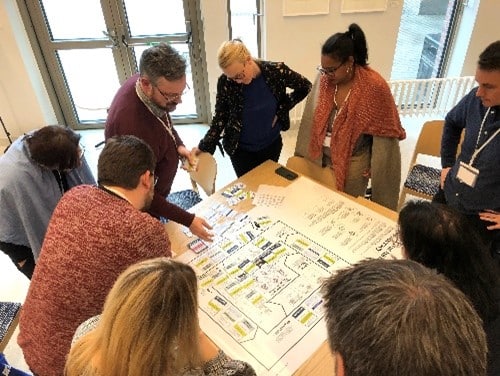European cities are learning how to hit net-zero goals together

Cities in Europe are at the forefront of tackling global climate challenges. Their density allows for more energy-efficient housing, transport and service provision. Climate KIC-led initiative, NetZeroCities, its Pilot Cities Programme, and the Twinning Learning Programme represent Europe’s efforts to drive urban areas towards climate neutrality. These initiatives, part of the broader EU Climate-Neutral and Smart Cities Mission, emphasise collaborative learning, experimentation, and innovative solutions. This article covers the key learning elements of these programs. It also highlights their impact on the cities that took part.
A space for experimentation
The Pilot Cities Programme is the primary learning vehicle within NetZeroCities. It gives cities extra funding, support, and training to help collective learning. The programme’s design also encourages experimentation, which creates a dynamic environment for cities to explore and refine their approaches to achieving climate neutrality.
From last year, through March 2024 and beyond, the Pilot Cities Programme bootcamps set the stage for a comprehensive learning journey. By thinking through their challenges and opportunities in person, cities have had many opportunities to gain a deeper understanding of their different realities and ways of working. This sparked potential solutions that they could scale and replicate in various contexts and helped them identify beneficial contacts for further discussions.
In the first years of the programme, cities have already explored the need to define the role of city administration in the transition, the need for good practices to boost citizen involvement, and the difficulty in identifying and engaging the right stakeholders. They are also discovering the potential of collaboration with each other.
The programme’s “sensemaking sessions” offer opportunities for cities to share their experiences, difficulties, and questions with peers working on similar challenges. Here, they can receive feedback, encouragement and advice from other cities, reflect on past experiences and current work and anticipate future hurdles.
Learning in groups
The Twinning Learning Programme connects Twin Cities through a two-way exchange between cities in the Pilot Cities Programme and partner cities across Europe. This opportunity allows them to learn from each other, share knowledge, and collaboratively develop strategies to achieve climate neutrality by 2030.
Site visits are crucial to the program. They enable in-person interactions between Pilot and Twin Cities. These visits started in February 2024 and have already shown significant benefits.
After months of collaboration, eight team members from Belfast and Galway city councils met in person. They visited Galway’s WarmHome Hub, a community centre pivotal in educating residents about retrofitting and climate action. Throughout the visit, Belfast gathered insights and strategies to inform their pilot retrofitting programmes, aiming to replicate Galway’s success in enhancing community involvement and energy efficiency initiatives.
“The Twinning Learning Programme is a valuable experience that allows us to establish connections at a technical level between municipal teams. It facilitates innovation processes and approaches to climate and energy problems, enabling us to think outside the box,” said Javier Frades Orallo, Project Officer for Bioeconomy and Biocities in the Spanish city of Soria during a site visit.
Multiple capacity-building initiatives
NetZeroCities Winter, Spring, and Summer Schools are another integral component of the extensive capability-building programme for EU Mission Cities. These schools offer both online and offline learning opportunities, guiding cities in their pursuit of climate neutrality by equipping them with the necessary skills and knowledge and facilitating the rapid formulation of cohesive action plans and robust funding strategies.
Participants describe the Summer Schools as “inspiring and useful,” “the chance to tell your story,” “good networking opportunities, and “providing intensive training that reduces the amount of extra work” to help cities in their climate action pathways towards climate neutrality.
The workshops at the latest Spring School in Stockholm focused on social innovation and stakeholder engagement, climate investments, and designing a portfolio of actions.
Held in Budapest, the Winter School brought together representatives from 19 Mission Cities who discussed best practices. The event provided a platform for collaboration and experience sharing.
“The Winter School facilitated thematic learning and experience sharing, which are essential for Mission Cities. These interactions provided a platform for connection and empowerment,” noted a participant.
The NetZeroCities initiative and its associated programmes, the Pilot Cities Programme and Twinning Learning Programme, provide a framework for learning, collaboration, and innovation among European cities. By offering structured learning opportunities through boot camps, schools, and sensemaking sessions, these programmes support cities in navigating the complexities of a transition to climate neutrality. The shared experiences and collaborative efforts not only speed up progress but also build a resilient and interconnected network of cities ready to tackle global climate challenges.
To learn more, visit netzerocities.eu


